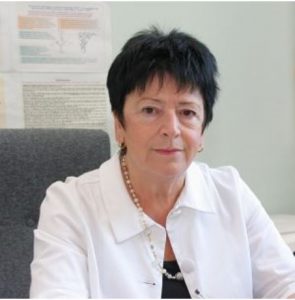Symposium “Fundamental Genetic/Cellular Systems/Processes: computational and experimental approaches”
Section “DNA replication and repair”
 |
The section “DNA Replication and Repair” is sent for consideration of the key processes to maintain genome. Defects in DNA replication, repair and their regulation cause serious hereditary diseases, cancer development and aging. Studies of mechanisms of DNA replication and repair are at the forefront of the world science, since they are directly related to search of the ways of survival of living organisms, and of the optimal therapy of diseases. This section will present the most recent developments in the field. |
| Olga Lavrik, Institute of Chemical Biology and Fundamental Medicine of SB RAS, Novosibirsk, Russia |
Section “Transcription, splicing, translation”
 |
Within the framework of section “Transcription, splicing, translation”, reports on the study of these basic cellular processes will be considered using modern computer and experimental approaches. |
| Olga Lavrik, Institute of Chemical Biology and Fundamental Medicine of SB RAS, Novosibirsk, Russia |
Section “Apoptosis and other fundamental cellular processes that regulate cell fate”
 |
Section “Programmed Cell Death” welcomes publications describing new results in the field of research on this most important property of all multicellular organisms. Deregulation of programmed cell death leads to a number of diseases, including cancer and neurodegeneration. The most common cell death pathways comprise apoptosis, necroptosis and autophagy. In the section the computational models of the cell death networks and their biological implications will be addressed. The central attention will be given to the models of extrinsic apoptotic pathways as exemplified models of apoptosis. The non-linear dynamics of the cell death networks, positive feedback loops and bistability as well as stoichiometric switches in apoptosis will be discussed. Furthermore, the current approaches of systems medicine will be presented involving the generation of new therapies connected to diseases with deregulation of cell death. Here special attention will be given to the target identification and development of small molecules specifically interacting with the key regulators of cell death networks. |
| Inna Lavrik, Otto von Guericke University, Magdeburg, Germany |




